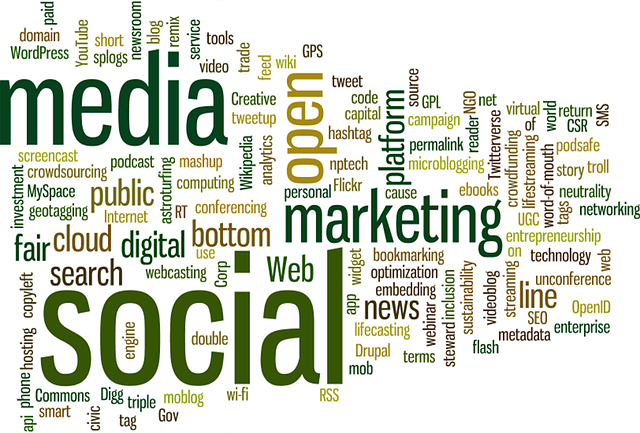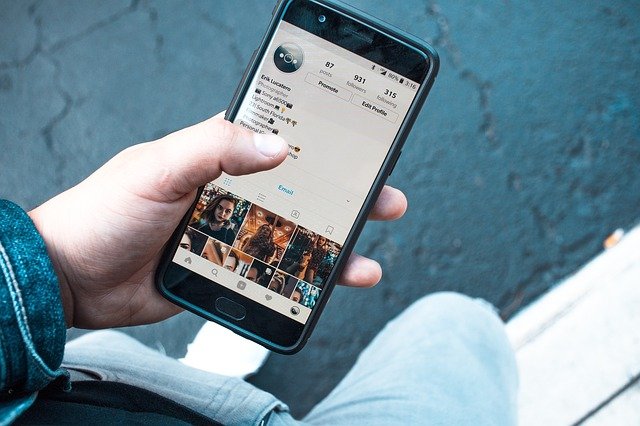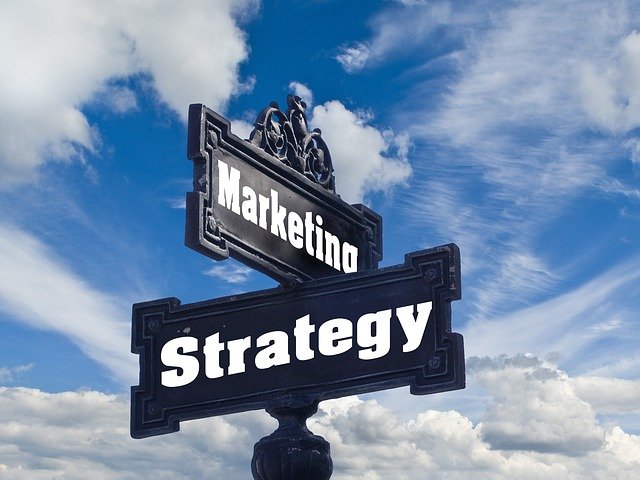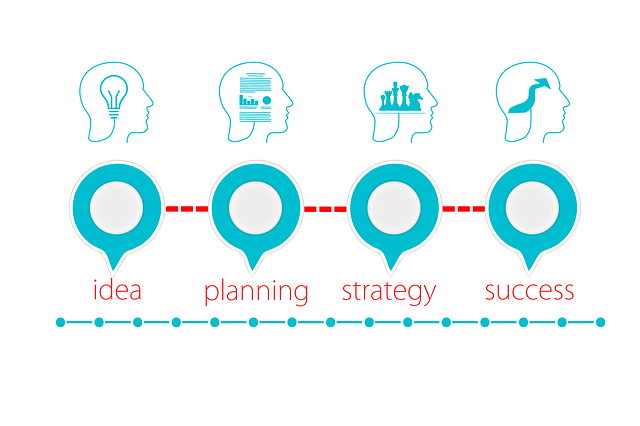Is Paid Social Media Traffic Now Better Than Organic Social Media?

“Why should I even bother with paid social media traffic? Can’t I get pretty good results just by using all the free tools offered by social media?”
This is a great question, and I think it deserves to be addressed properly.
First off, if you’re serious about growing your online business, you absolutely need to have a presence on at least one or two social media platforms. Many online brands are now finding that social media is their preferred method for managing their target audience - often in real time - with minimal time and cost involved.
Interacting with your target audience on social media is far different than relying on chatbots, email messaging, or phone calls. In fact, most brands now consider it an essential business practice to have a proper social media presence. It allows users to interact with them - live, and publicly - behind the relatively secure platform of a social network.
People are putting a much higher value on their freedom to voice their opinions and concerns publicly, over and above many long standing rights and freedoms. The right to free speech is now the driving force behind social media.
Secondly, in order to determine whether paid or social media traffic is right for you, you need to understand that both forms are essential for your business.
But it depends on what you are trying to accomplish.
Is Social Media Even Good for Driving Traffic?
It can be… but if that’s your main focus, you’re going to be disappointed. Social media is changing, and is no longer the traffic-driving, click-generating juggernaut it used to be.
The reason for this is because there is only so much content people can consume before they eventually just have to “shut off the hose” so to speak.
You see, when social media was still in its infancy, people were really just being swept along with the novelty of it all. Those were the days when people were just discovering the freedom and enjoyment of reconnecting with each other, when social media traffic was booming, when clicks and ROI were the leading social media metrics - and when savvy marketers were seeing great success funneling traffic back to their websites to drive up sales.
But as more and more brands jumped on the bandwagon and began publishing more and more content, we inevitably began to filter out some of that content.

Now, no matter what social media platform you’re on, there is so much “targeted content” being posted that there’s no way one person can interact with it all. It’s very similar to the way “banner-blindness” began to develop in internet marketing, only now we’re blocking out the very content that’s been hand-written and hand-picked just for us.
If a piece of content, such as a blog post, infographic, or tweet is not seen as immediately relevant or engaging, people will now just scroll right past it - never to see or engage with it again.
As far as “driving traffic” is concerned, today you will have much better success using organic search and search engine marketing than you will trying to convert clicks or sales through organic social media.
That doesn’t exactly answer the question of whether or not you should be using it drive traffic. So let me just answer that quickly: “yes, but not directly.” I’ll get to that later.
You have better and less time consuming methods of driving traffic to your site at your disposal. But don’t make the mistake of abandoning social media altogether.
You see the real power behind social media is it’s public display of one-on-one interaction.
You might think that you’re only conversing or engaging with one or two people on social media, but potentially hundreds or even thousands of people - all from your target audience - can also observe how you interact with people. And while they’re observing these on-to-one interactions, they’re evaluating you as a business.
And that observation can be a powerful incentive for them to either seek you out further and deepen their relationship and trust with you, or to write you off and block you completely; all based on what they perceive in your interactions with regular people.
As social media continues to shift away from the “broadcasting” type of medium it once was towards a more interactive, one-on-one engagement platform, it will be ever more important that you maintain a solid social media presence.
Social media will continue to be the preferred platform for engaging with people, supporting your customers, building your brand, and increasing customer loyalty.
What Paid Social Media Traffic Can Do For You Today
Of course it’s not as simple as just throwing money at a marketing program and enjoying success. Perhaps in the early days of social media you could do that, but our sophistication as an audience has increased, along with our discernment as consumers. Which basically means that, without properly targeting and testing, you may find yourself simply throwing away money with media ads.
There is, however, a time and place for driving traffic to your site with social media ads.

Once you’ve accomplished whatever goals you’ve set out for your ads, you then need to re-focus your efforts on engaging with your organic social media audience.
Basically, if you’re just starting out in business using paid social media can be a great way to grow your reach and create some fantastic ROI from your ads.
The same is true if you need to expand the demographics of your audience (saying reaching out to a nearby city or state), or you just want to increase your audience size. Paid social media can also be used to increase your organic traffic, albeit only temporarily.
What remains true for virtually all major paid social media is that each campaign will have it’s own “shelf-life” which, once it’s run out of steam, needs to either be retired or re-written entirely.
A properly targeted and tested social media campaign can be a powerful boost for your business.
So how do you get there? What do you need to do in order to insure your paid social media traffic is responsive to your ads, and not just people “liking” your content?
Foundational Steps Are the Key to A Successful Social Media Campaign
The most important step in creating a successful social media campaign is first determining what it is you actually want to achieve. Remember, there are some things that social media is good for, and other things it is not good for.
Here are five legitimate uses for paid social media for your business:
Increase Traffic
I realize I’ve already said increasing traffic with paid social media is not going to work… and I meant as a long term solution. On the short term however, you can use paid ads to bump up your organic social media posts - which will increase audience engagement and thus, traffic.
Although you might think this is better suited for your organic social media strategy, sometimes the only way for you to break through a wall is to bust it wide open with a highly targeted ad campaign.
We have to keep in mind that one of the reasons that social media is so powerful is because of it’s built-in ability to make anything go viral. We want people to “catch the fire” so to speak and share our content like crazy. And when people share content, it drives traffic.
It may not be a permanent traffic solution, but it can be a quick one.
With promoted content, say on Facebook, we can achieve just that.
Paid social media ads are highly targeted, not just for geolocation and age groups, but also for interests, hobbies, likes and dislikes.
In many ways this kind of targeted traffic is far more powerful and influential than search engine marketing.
Increase Visibility
In today’s age of oversaturated markets and content weary audiences, it can be easy for your business to get lost in the fog of marketing.
Even landing a spot on page one of Google may not guarantee success, especially when you’re competing with big companies who have thousands of dollars to spend on ads every day.
So it can be a smart marketing move to use social media ads to boost your visibility and stay relevant to your audience.
Increase Engagement
There’s nothing worse on social media than your audience not connecting with you. The whole purpose of social media is for people to be, well, social. But if there’s no interaction between you and your audience, or your audience and each other, then your business is going to flat line.
A simple way to increase engagement with a paid ad might be run an ad on Facebook aimed solely at increasing the number of fans to your fanpage.

Although not directly related to your business bottom line, it is nonetheless measurable, specific, and is a great way to increase your audience base.
Increase Leads
This might be as simple as setting up a free offer and collecting emails on the back end of the ad. Each of those collected email address are leads for you to follow up with later on. And although each social media platform has its own idiosyncrasies to be aware of, they will all perform essentially the same function.
Not only will these leads be highly targeted, if you test your ads properly and thoroughly, and write your ads specifically for your audience, they will probably also be highly motivated.
And highly targeted, highly motivated leads are about as close as you can get to the holy grail of internet marketing.
So it will definitely be worth your time to invest in adequate training to make sure you know how to create and test ads for the purpose of leads.
Increase Sales
Here is where most marketers and business start; but it may actually turn out to be the least effective.
We need to keep in mind that people are already banner blind. People are already content weary. They already use ad blockers and pop-up blockers because they’re sick of seeing pushy ads.
But why are they tired of ads?
Because the ads were not targeted, not relevant, or both.
When people are ready to buy, they don’t see “ads” as irrelevant - they see them as a possible solution.
So, in order to increase sales with paid social media ads, you need to be sure that your ads are both very targeted and very motivating. You’ll want to spend most of your efforts here, not on the ad itself, but on the audience.
If you put in the time to properly and painstakingly target your audience, you’ll know which social platform to use, when to use it, who to say it to, and what to say. The ad itself will practically write itself; but of course, don’t leave that to chance either.
With proper targeting you can see excellent sales returns on your social media ads.
Bottom Line - Paid Social Media Traffic Can Work
If you stick with the above five recommended uses for paid social ads, you can see excellent returns, both in your audience responsiveness and in your bottom line.
You can increase traffic, visibility, engagement, leads and sales - but there are some things to keep in mind.
You really need to know your audience. Who are they? Where do they hang out? What do they like and dislike. You’ll find the article on building a buyers persona particularly helpful here, because you can address all of these questions by drafting a buyers persona.
You really need to do your testing. I realize it’s tempting to jump right in to crafting ads, shelling out cash, and watching the sales meter.

But you have to keep in mind that your in this to build, not just to cash in.
Cashing in is fun, but not at the expense of sinking your audience because you’re too much in a hurry to do things right. So test, test, test - and do it right! Once you’ve got it right, then you can have fun cashing in!
You really need to monitor results. Listen, just because it’s paid social traffic doesn’t mean it’s a short cut. Many marketers and businesses, large and small alike, have learned the hard way that you can’t just set up a bunch of ads and walk away expecting results. Part of testing is watching to see what is happening.
Your better off to pull the plug on a cash-sucking ad that’s a dud, than to tweak it to death hoping to get some kind of response from it.
Here’s is where proper training is essential. Invest a little bit now to learn the proper way to run paid social media traffic, and you can reap the rewards for years and years to come.
Congratulations @mlindley! You have completed the following achievement on the Steem blockchain and have been rewarded with new badge(s) :
You can view your badges on your Steem Board and compare to others on the Steem Ranking
If you no longer want to receive notifications, reply to this comment with the word
STOPVote for @Steemitboard as a witness to get one more award and increased upvotes!
I know that I do not post often enough, but I do comment on other peoples posts, and I get very little engagement for my efforts on Facebook, now Instagram and Pinterest are totally different. You post a new image and you often get instant engagement. I have bought traffic from Facebook and except for stats, you get nothing else unless someone bought from you. All the others that clicked they become a stat, no username, no email, no ip address, nothing. For me, that's like getting half a coin. Now add a pixel to your blog, make a post and it's a whole new ballgame. Great post - I enjoyed it much
Florence, yes I completely agree with you. And your experience seems to bear out what is often the case with social media marketing. Facebook especially can become a great big black hole for ad money that can end up getting very little in return. Often what affiliate marketing comes down to is finding one -just one - marketing strategy that works for you and then hitting it with all you've got. Thanks for your comment!